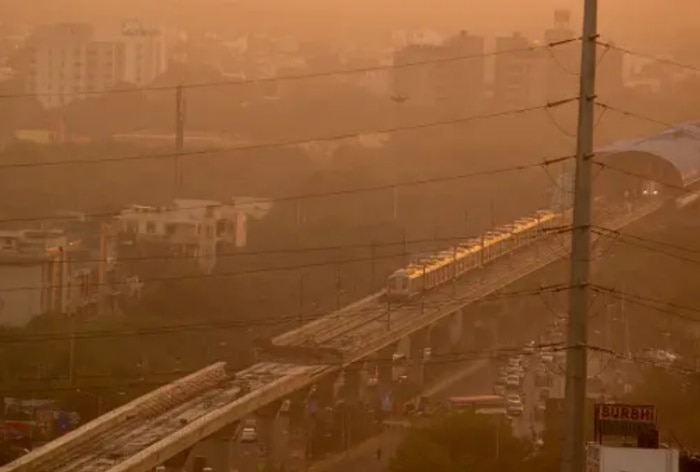Air pollution levels are at an all-time high, engulfing large portions of the nation in a dense layer of fog right now. Health experts reveal the adverse impacts of air pollution on health.
Air Pollution in Delhi-NCR: As the national capital region’s (NCR) average air quality stays over 420 all day, placing it in the ‘severe’ to ‘hazardous’ category, parts of Delhi have been recording AQI values above 900. Doctors and other health professionals discussed the dangerous effects of air pollution on human health as the bad air quality in Delhi-NCR persists.
Dr Piyush Ranjan (Additional Professor, Department of Medicine, AIIMS), while speaking to ANI, said that there is scientific evidence that establishes a relationship between air pollution and different types of cancer. He also said that apart from causing harm to the respiratory system, air pollution has direct relations with coronary artery diseases like heart attack, brain stroke, and arthritis.
“It is important to understand that air pollution affects various systems of the body, apart from causing respiratory diseases. Pollution has direct relations with coronary artery diseases like heart attack, brain stroke, and arthritis. We have scientific evidence that establishes its relationship with different types of cancer,” the AIIMS doctor said.
The experts also warn of ill effects on the foetus while alerting to a massive health emergency situation. As per the doctors, air pollution damages the brain and heart and can trigger anxiety across all age groups if not dealt with precaution. Notably, the air quality in Delhi remained in the ‘Severe’ category on Sunday for the fourth consecutive day, though with a marginal dip in the Air Quality Index (AQI) recorded at 410 against 504 on Saturday, as per the System of Air Quality Forecasting and Research (SAFAR-India).
According to the data issued by SAFAR-India, the air quality in the Lodhi Road area was recorded at 385 (Very Poor) while at Delhi University area stands at 456 (Severe). According to doctors, for any healthy person, a recommended AQI should be less than 50, but these days the AQI has spiked beyond 400, which could prove fatal for those suffering from lung-related diseases and even poses a risk of lung cancer.
How to Reduce The Risk of Cancer?
All year long, Delhi ranks among the most polluted cities in the world. However, a number of things, such as farmers burning agricultural residue, slow winds, and people setting off firecrackers during celebrations, cause the air to become particularly poisonous throughout the winter. Every year, the contaminated air in Delhi leads to serious health problems for its citizens.
- Wear N95 masks or similar masks before venturing outside, especially in heavily polluted locations, to filter out hazardous particulate matter.
- Having an abundant diet of fruits, vegetables, and whole grains will help shield your cells from oxidative stressors that might cause cancer.
- In addition to maintaining physical health, exercise may help reduce your chance of developing lung cancer. Take precautions to avoid exposure if you work with chemicals or other compounds known to cause cancer.
- Indoor air quality can be enhanced by some houseplants, such as peace lilies and spider plants.
- Water consumption keeps your body hydrated and aids in the removal of pollutants.
- Reducing exposure to secondhand smoke and quitting smoking can help alleviate respiratory issues.
(With ANI inputs)

